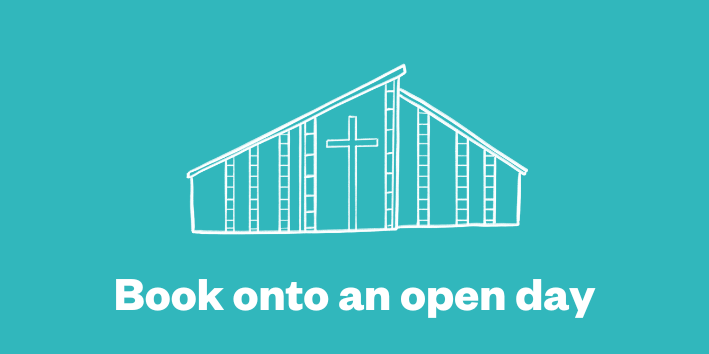Frequently asked questions
Do you offer distance learning courses?
Both of our BA (Hons) courses are available in Flexible modes of study, whilst our MA in Applied Theology involves short study blocks at the Christchurch Campus during the first two years. This provides you with the convenience of being based in a location of your choice, for the majority of the time, and attending college study blocks at regular intervals.
We’ve had students successfully complete these courses whilst based in all sorts of locations, including the Isle of Man, the Shetlands, Cornwall and Northern Ireland.
What we don’t offer are remote-only BA or MA courses, and for good reason. We believe that relational maturity is a crucial part of achieving a balanced, effective and faithfully-biblical education—alongside academic, spiritual and practical growth. This means that all of our courses, in one way or another, bring you together regularly with like-minded Christians—both fellow students, and college staff—to support and stretch you in your studies.
Find out more:
Courses at a glance
What are your entry requirements?
To be accepted onto this course you need to have the potential to succeed in it and to benefit from it, both academically and vocationally. Details of what that means for the specific programmes, including English language requirements, are listed on the relevant pages:
Find out more:
Foundation Year
BA (Hons) Applied Theology
BA (Hons) Applied Theology (Youth & Community Work)
MA Applied Theology
What fees will I need to pay?
Current tuition fees and related costs for all Moorlands College courses, locations and modes of study are available to download from our Fees and finances page.
Find out more:
Fees and finances
Student Finance website
Can I get Student Finance support to help pay for my fees?
Student loans from the UK government are available to eligible students on the full-time BA (Hons) degree programmes (including the Foundation Year, if taken as the first year of a four-year degree, and Flexible Learning), and also to those studying our MA in Applied Theology, and our MA in Language, Community and Development.
Please note that the loans may not cover the full amount of your fees.
Find out more:
Fees and finances
Student Finance website
Do you offer any bursary funding?
You’ll need to be able to demonstrate that you’re able to fund the course from the beginning of your studies. We do have Student Bursary and Hardship Funds, but these are normally only available to students after their first year of study with us.
Find out more:
Fees and finances
As an overseas student, what do I need to be aware of?
We’re delighted to welcome students from around the world. Learn more about applying as an international student.
Can I visit the college before applying?
Yes, we actively encourage it! We host a number of Open Days every academic year at both our Moorlands College Campus and our South West Campus, giving you the opportunity to come along and find out more about our courses, to meet staff and students, and to have a tour of our location. All Open Days include a free lunch, and guests are welcome; please just book in advance here.
Find out more:
Open Days
(If you can’t make an Open Day, you can visit the college informally instead. Please email communications@moorlands.ac.uk and they will be happy to make an appointment.)
Is there anything I need to hand before I begin the application form?
Yes, although you can save your application form as you progress, and come back to it later, it’s a good idea to have everything you need to hand. If you’re applying for either a BA or the MA course, we’ll ask you for…
- A passport-style photograph, ready to upload.
- A list of your previous education and employment details.
- A written statement (up to 750 words), describing why you’re thinking about Christian training, what major factors have helped you most in your spiritual development and growth, and why you feel Moorlands College is the right place for you.
- The contact details of three referees, including your home church leader.
Find out more:
Apply for an undergraduate BA course
Apply for the postgraduate MA course
Who should I have as my referees on my application form?
Three references are required from mature Christian adults who know you well. Typically, these are your church leader(s) and mentors who have known you for at least one year, and know something of your background and Christian journey. Your references cannot be from a family member or from current Moorlands College students or staff.
How do placements work?
There are plenty of occasions for BA students to put theory into practice within a variety of Christian organisations and churches. All students (including campus-based) have to complete a certain number of hours on placement, whilst additional opportunities help them to develop their particular areas of interest even further.
This includes an immersive placement opportunity where you can spend 4-8 weeks gaining intensive experience in your chosen context. This is an optional placement for Level 6 students and can choose to be placed within the UK or abroad.
Find out more:
Placement opportunities
What are the term dates?
Our academic year typically runs from September to June. For term dates relating to each individual course, please visit the course page that you’re interested in or contact our Admissions team via admissions@moorlands.ac.uk
Can I do part-time work alongside my undergraduate studies?
This depends on your chosen mode of study.
It’s usually recommended that your time at college be set aside for dedicated study, without the added pressure of earning an income. If you are campus based, it is possible to hold down a part time job, although your lectures are spread through week days and there are placement commitments. Christmas, Easter and Summer holiday periods (approximately five months per year) also offer you the opportunity to work.
If you are on the flexible degree, your job may also be your placement organisation (as a part-time assistant pastor or youth worker, for example). You also have greater flexibility around part time employment during the week.
Can I apply through UCAS?
No, we are currently not registered with UCAS and encourage you to get in touch with us directly, or begin filling out your application form here.



